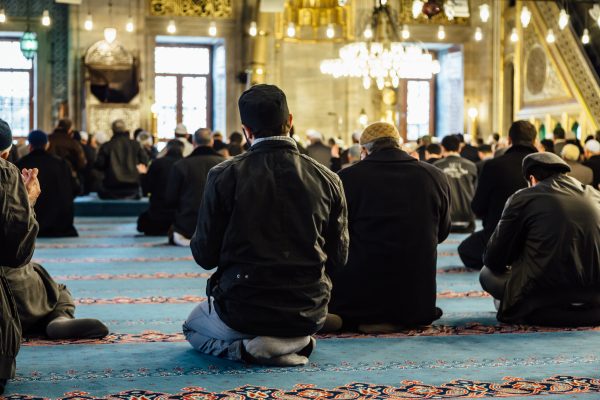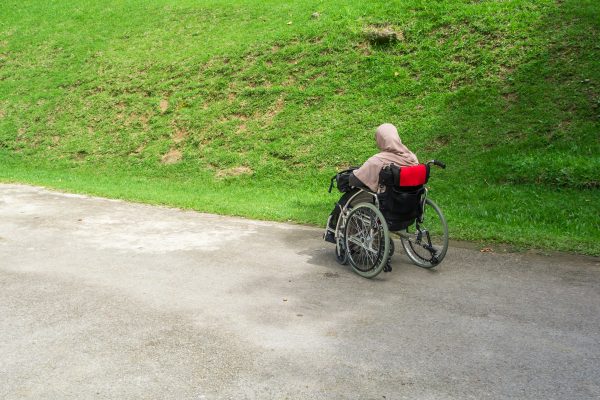Above and beyond, trust in the Almighty is the foundation of Muslims’ belief system; the conviction that everything happens by the will of Allah.
Above and beyond, trust in the Almighty is the foundation of Muslims’ belief system; the conviction that everything happens by the will of Allah.
Above and beyond, trust in the Almighty is the foundation of Muslims’ belief system; the conviction that everything happens by the will of Allah.
Grief is often thought of as a response to death. However, it has no rules. It may be experienced by a family while a loved one is still alive. It is difficult to see someone we love suffering. Grief thus stems from loving somebody. There is a whole range of emotions that the immediate family endures, as its members evolve into caregivers. With terminal and chronic illnesses, both the sufferer and family caregivers undergo grief.
As the family is taken off guard, the diagnosis may initially lead the members to spiral into different stages of grief. Later, when a family looks after a loved-one for years, people generally fail to register that they are grieving. At most, it is generally believed that the griever is experiencing sadness. In reality, grief takes a person through numerous emotions including terror, remorse, anger, isolation and despair. Moreover, every individual will go through these emotions, for varying timespans and with unpredictable concentrations. Grieving caregivers need to be aware of the fact that such emotional turbulence is normal. Recuperating from such grief is a process and takes time.
Above and beyond, trust in the Almighty is the foundation of Muslims’ belief system; the conviction that everything happens by the will of Allah. However, even with firm faith in Providence, caregiver exhaustion is inevitable.
Coping with caregivers’ stress and handling grief
Family caregivers need to discover their balance in how to go about their days. They are the people who attempt to do it all and cannot. One needs to keep in mind that they are not the only ones that are in this place of uncertainty, guiltiness and exasperation. It is a part and parcel of performing the most challenging task one can simultaneously love. Technological advancement might replace people at dreary and monotonous tasks. However, technical development continues to lag in caregiving jobs that need empathy, perspective, and adaptive emotions.
While on the one hand the caregivers are dreadfully occupied, on the other they might spend long stretches of time lingering about. They might be completely drained physically yet discover themselves unable to sleep. There is anxiety due to remaining in a high alert state. Friends might find the caregivers distracted and consider them to be undergoing a psychological issue when they are in fact grieving. The situation of the family caregivers is complicated by caregivers’ fatigue and strain.
A person undergoing caregiver’s burnout may experience varied signs, including the following:
- Feeling distracted
- Disconcerting spells of anxiousness
- Draining exhaustion
- Trouble falling asleep
- Changes in appetite
- Difficulty to stay relaxed despite the availability of assistance
- Perpetual knack for ignoring or delaying personal necessities of well-being
Accepting help
It is essential to realize when to request for assistance. Regrettably, a lot of caregivers determine an idealistic standard regarding the extent of care they may offer to their loved one. They fail to factor in their individual shortcomings in the process. It is human to request for support and agree to take assistance when required and extended.
Share with a friend
As they doubt the capacity of others to understand their situation, caregivers usually keep their struggles to themselves. However, there are times when one is overwhelmed. On the one hand, the family caregivers may not want to give the impression of weakness, while on the other hand the loved one’s condition might be the only thing they would want to discuss with everybody. Lack of a safe space for expressing one’s grief may lead to emotional isolation. Reaching out to a friend or finding caregiver communities; whether physical or online, where one can share their experience can be remarkably elevating.
Keep the humour alive
Try to hold on to your wit. Some people have an uncanny ability to find humour in the most prosaic settings. It can be a helpful way to keep stress at bay. At times, wit can be incredibly uplifting.
Taking care of oneself
Caregivers may at times find their work to be challenging and straining, however, if handled correctly, it might turn out to be exceptionally gratifying. One can maintain a list of methods to cope, such as:
- Working out
- Re-reading the book of your choice
- Deep breathing
- Gardening
- Reaching out to a friend
Keep on including other techniques as you figure out what works for you and resort to them as soon as you find yourself strained. With time and support, a family’s intrinsic belief system also gradually pushes them into a state of equanimity. As Terrence McKenna puts it “by hurling yourself into the abyss and discovering it’s a feather bed.”
Faith in the divine plan
Remind yourself that the situation is from Allah. Faith in the plan of God is what keeps one afloat during such trying times.
“… But it is possible that you dislike a thing which is good for you, and that you love a thing which is bad for you. But Allah knows, and you know not.”
(Al-Quran, 2:216)
One needs to remember that every tribulation is transient. The shift from calamity to equanimity involves faith. Difficulties assess. The trying situation might also be His blessing and a means of expiation of sins. The Messenger of Allah, peace and blessings be upon him, said;
“Whenever Allah wills good for a person, He subjects him to adversity.”
(Sahih Bukhari)
Besides, it is the word of Allah that nothing befalls a person beyond his endurance. In the Holy Quran He says, “Allah does not burden a soul beyond that it can bear” (2:286).
Hoping through the grief
The most distinctive feature of caregiver grief experienced by a Muslim family might be hope. There is nothing impossible to the Almighty. Everything lies within his dominion. There is always the hope that a miracle drug might be discovered or a medical breakthrough might suddenly surface. Hope is what carries the family caregivers through the grief.





